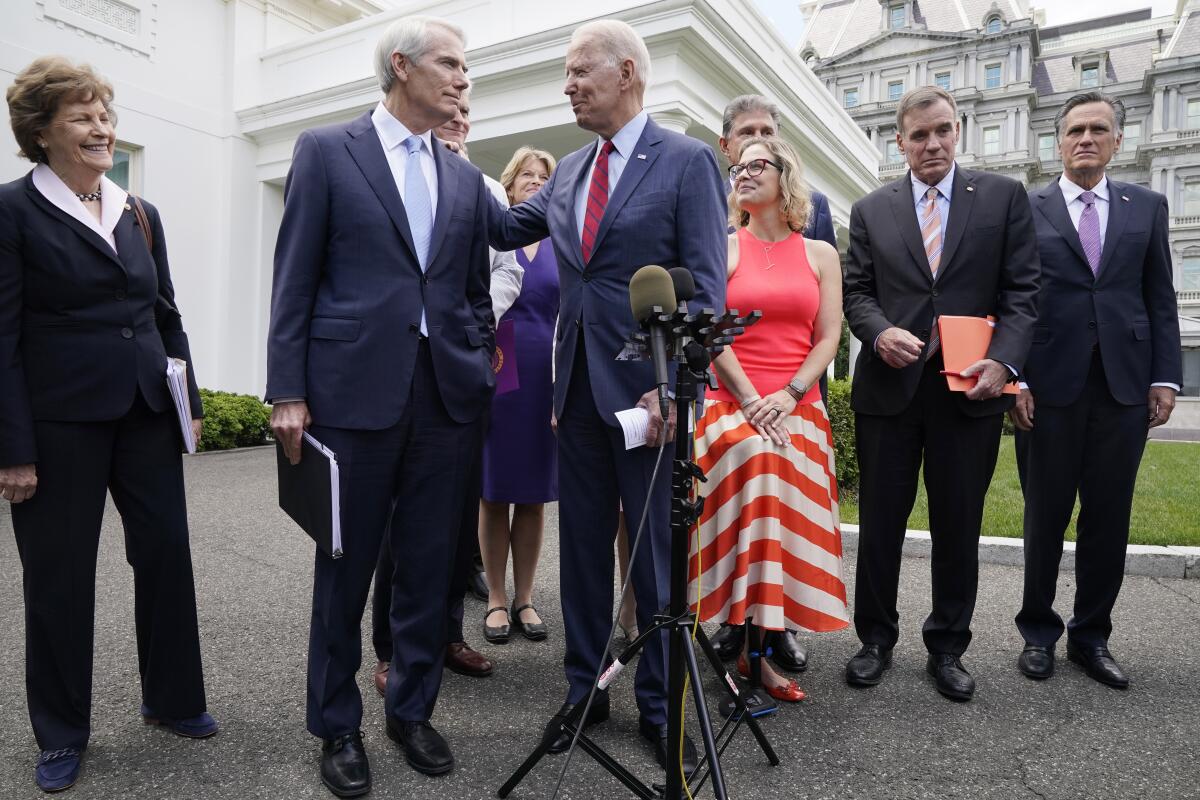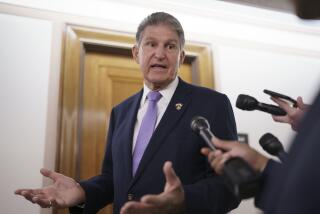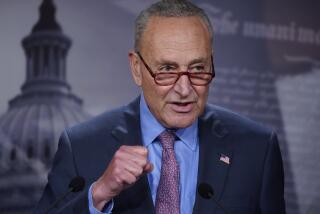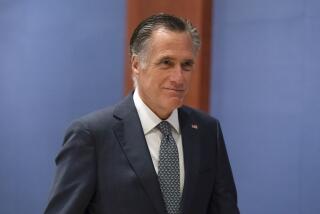The infrastructure deal: Probably necessary, but not nearly sufficient

- Share via
After weeks of negotiations, Republicans and Democrats in the Senate finally found a way to agree on a $579-billion increase in badly needed infrastructure spending: Stick almost exclusively to traditional road, bridge and rail projects, and find a bogus way to pay for them.
By all means, Congress should set aside its debilitating polarization to reduce the massive backlog of repairs and improvements to transportation, water and electrical systems in this country. In fact, it would be a good thing if lawmakers could come together on a plan to do anything significant, if for no other reason than to show that Congress can still function. Sometimes.
Yet there is much to like in the framework hammered out by five senators from each party’s caucus, who were negotiating on behalf of a bipartisan cohort of 21 senators. By the White House’s estimate, the deal would provide about two-thirds of the roughly $900 billion Biden requested for such things as highways, mass transit and Amtrak, along with an assortment of infrastructure investments not usually funded by the federal government, such as broadband networks, new (lead-free) water pipes for schools and electric vehicle charging stations.
Assuming at least 10 of the 11 Republicans in the group remain on board and all 50 Democrats support the plan, it will survive the now-obligatory filibuster and head to the House, where Democrats have the votes to pass it over any GOP opposition.
What’s missing, though, are the major investments Biden proposed in research and innovation, particularly in hastening the development of clean-energy facilities and training people for clean-energy jobs. There are nods to the damage already caused by climate change, but we need more than small gestures at this point — we need transformative ones.
Nor is there anything in the plan for housing, schools or child care centers; where Biden’s plan looked holistically (and perhaps too broadly) at the investments that could promote economic growth, the bipartisan negotiators’ proposal focuses too narrowly on the sort of things lawmakers are accustomed to thinking about as infrastructure.
Topping it all off is the bipartisan plan’s reliance on funding sources that can’t possibly cover the measure’s cost. In addition to such smoke-and-mirrors techniques as extending mandatory spending cuts and cracking down on tax cheats (good luck with those!), the negotiators propose to reclaim unspent COVID-19 relief dollars from 2020 — spending that wasn’t paid for in the first place. But, hey, the plan calls for no increase in tax rates, a red line even for moderate Republicans.
Biden and Senate Majority Leader Charles E. Schumer (D-N.Y.) insisted that the bipartisan deal was not the end of the story. Democrats intend to put many of the items dropped from the president’s initial proposal, along with elements of Biden’s $1.8-trillion American Families Plan, into a budget reconciliation bill that cannot be filibustered, and so needs no Republican support. That measure is expected to include tax hikes to offset the additional spending, an important demonstration of fiscal responsibility.
So it’s best to think of the bipartisan proposal as a first act in a longer play, and take it for what it’s worth: a sign that Democrats and Republicans in the Senate, at least, can agree on something important. That’s necessary, even if it’s not sufficient.
More to Read
A cure for the common opinion
Get thought-provoking perspectives with our weekly newsletter.
You may occasionally receive promotional content from the Los Angeles Times.









